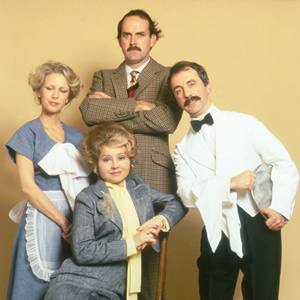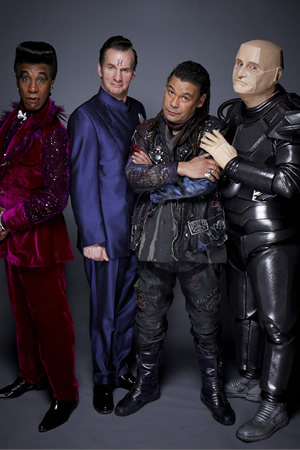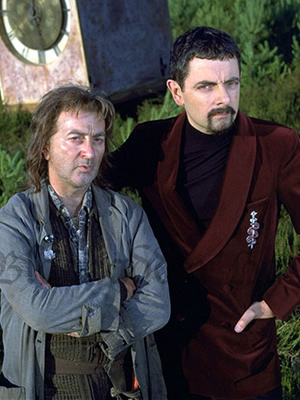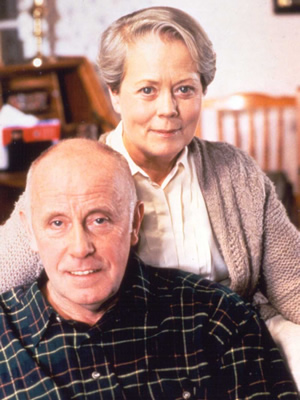Knowing when to stop: brevity in sitcom

The art of writing sitcoms is clearly no easy task and it seems that even the best writers can fail to produce that perfect recipe.
Sitcoms are often directly connected to the social period in which they are produced and this can influence their potential shelf life. However, there also seems to be a saturation level that many writers reach: a time when all comic avenues appear to have been exhausted. It is at this point, then, that the writer(s) should arguably invest some time in a fresh project for fear of diluting an otherwise successful comedy package. For instance, I would argue that Fawlty Towers is, comparatively speaking, the closest show in Britain that we have to sitcom perfection. John Cleese and Connie Booth do an excellent job of creating a wholly convincing, comedic world with fun and in-depth characters in just twelve episodes. And of course, having a fantastic cast helped it enormously.
Most people who comment on Fawlty Towers do so with an abundance of fondness and it would be particularly unfair to suggest that it ran for too long. Critics tend to suggest that the first series was notably stronger than the second, but to me they make such a seemingly concise package that I have always viewed it as a twelve-episode single series. Moreover, each episode seems to stand proudly and the overall quality is arguably consistent.
While some have implied that the show may have benefited from another series, I am sure many people are in no doubt that as a whole it has everything a sitcom could need. However, most shows struggle to achieve this overall quality due to overrunning, and numerous remarkable writers - even after producing fantastic sitcoms - have, in my opinion, failed to sustain their usual standard due to an inability to recognise the signs.

Red Dwarf first hit our screens in 1988 and, whilst its uptake was initially slow, viewers grew to love the characters and the situations in which they were placed. Of course some episodes were better than others, but the overall standard of writing - up to and including Series 6 - was high. There may have been some shaky sets and general budgetary limits but the writing and characterisations carried the show to a decent level of entertainment.
From Series 7, however, there is a mishmash of reconstituted situations, hackneyed lines, and only a smidgeon of progression. It seems that the scripts began to deteriorate and plot originality declined. A break-up in the writing team may have impacted negatively on motivation and originality. While Doug Naylor has shown that he can produce strong material as a solo writer, it would seem that the sitcom peaked at this point. The actors in the show are generally of a decent calibre but after stretching the show to its most recent (tenth) series it seems that the original Red Dwarf appeal has now unfortunately gone.
My personal opinion is that it was a high-quality show in the early days, but in order for it to make it into the 'Fawlty Towers category of excellence', the team should have called it a day after Series 6. While Series 10 can boast a number of individual funny moments, it does seem that the scenarios are basically altered plotlines from earlier episodes.
Another show that I believe mistakenly ran on too long is Only Fools And Horses. Del and Rodney's lifetime dream of becoming millionaires finally comes to fruition as their gold watch sells for an astonishing £6m+, and the boys hilariously take it in turn to faint. This was the perfect end to a perfect show but unfortunately they refused to leave it at that; whereupon the series as a whole was clearly in danger of overrunning and weakening its comedic appeal.

Time On Our Hands (the final of the much-loved 1996 trilogy) provided a tidy resolution and an extremely fulfilling ending for audiences that had, over more than a decade, followed Del and Rodney avidly throughout their adventurous lifestyles. Luckily for the producers, the characters were firmly established as valued British icons and viewers seemed content to be swept along with the show's development, despite some rather incredible storylines. Even more fortunate was that the show was extremely well written and maintained a high degree of acting quality.
However, although there was some success with early-2000s revival trilogy, such as Strangers On The Shore, for me the original impetus had since been lost. After the characters' original dream had materialised with the 1996 multi-million pound windfall, motivations were no longer relevant and the show was forced to take on a new dimension. This was, I believe, its Achilles' heel. Whilst the revived trilogy contained essentially funny episodes, they seemed out of their depth. Certainly, a lesser-known show would not have been able to have sustained its audience appeal so easily. Unfortunately, this latter trilogy's contribution to Only Fools as a whole only appears to have resulted in dilution.
The show arguably came to a natural conclusion as the Trotters became millionaires. Consequently, if the choice had been made to end it at this point then it may have captured a similar audience hunger to that portrayed by Fawlty Towers fans across the globe. Moreover, it seemed that cashing in on a good idea was just too good to resist, resulting in spin-off sitcom The Green Green Grass and prequel comedy drama Rock & Chips. In The Green Green Grass, characters appear weary and coerced into delivering lines that are often reconstituted from Only Fools while they routinely revel in their former lives. An apparently final OFAH sketch revival, following the 2011 death of writer-creator John Sullivan, will be broadcast shortly, as part of Sport Relief 2014.
Other shows that failed to predict (or even acknowledge) their own demise include The Fall And Rise Of Reginald Perrin (having reached saturation point during Series 2) and The Royle Family: originally an innovative and genuinely funny show, it wasn't long before the characters hit a particularly low point and resorted to employing clichéd lines and crudity to get a laugh.

These examples are by no means exhaustive and the process continues. Blackadder was written to an excellent standard, featured a superb cast and the ending of Blackadder Goes Forth was arguably one of the most poignant moments in British television. Its Millennium special (pictured) weakened its force as a sitcom to be reckoned with, yet it can arguably still hold its own. Consequently, rumours of recreating lost magic should be stomped on immediately (unless on this occasion it is the actors that are transported back in time).
Blackadder was (and still is) a fantastic show but only, in my opinion, as it stands. Shows such as Absolutely Fabulous should have avoided attempting any resurrection and accepted their place in history, regardless of whether they ended well or not. At the risk of portraying an imbalance and sounding pessimistic, however, I would say that in their peak many of these shows were excellent examples of top-notch writing.
Other shows have made far more successful returns, most recently Birds Of A Feather. I found the original series entertaining, and the revival series often funny and generally consistent with earlier episodes. However, whlist certainly popular the show was only ever mediocre in its heyday; therefore, I suspect that my expectations for the latest episodes were never high.
Perhaps the secret of longevity lies specifically in showing how characters have progressed rather than portraying older actors attempting to reproduce their former roles. In Still Open All Hours, Granville has clearly moved on and this adds to the comedy's credibility. But despite David Jason's considerable talent and screen charisma, the sitcom felt incomplete without Ronnie Barker. Consequently, even as it delivers truly laugh-out-loud moments, it feels time to draw it to an end. A full series, expected later in 2014, will be interesting to see.

I would argue, then, that the ending of a show is crucial for its overall quality, and that sustaining a format that has lived out its natural life can be highly detrimental.
In my opinion, sitcoms that ended on a high note include: One Foot In The Grave (with its successful mixture of humour and pathos), which gave us a poignant reminder of human mortality but provided a triumphant closure to a powerful sitcom; The Thick Of It - at the time of writing it has been suggested that the fitting end to Series 4 will also be the fitting end to the show; The Office - a good decision saw this capped at two series to avoid 'more of the same' which, although extremely funny the first time around, would have weakened its overall impact (although, David Brent is back on YouTube, perhaps testing the water for a return?); Father Ted - the finale of which was appropriate and intentional, despite the unfortunate and untimely death of star Dermot Morgan; and Rising Damp - although accompanied by the usual seventies' sitcom, spin-off feature film, the show's producers were adequately astute when executive decisions on its continuation were enforced.
Evidently, whilst there are unfortunate decisions from time to time, many writers can (and do) get it right: the result is consistently impressive and inspirational.
On a final point, I think it's worth mentioning the technique of development and transformation as an exercise for successfully extending the shelf life of a sitcom. The team behind Alan Partridge, for example, were able to morph the comedy Knowing Me, Knowing You... With Alan Partridge into what seemed like a separate show (I'm Alan Partridge) while cleverly retaining the original appeal of the character.
Perhaps, then, an audience requires a challenge. However, it seems clear that the regurgitation of hackneyed plotlines, with repetitive settings and overly familiar characters, shows that some sitcoms would benefit from a degree of brevity.
Help us publish more great content by becoming a BCG Supporter. You'll be backing our mission to champion, celebrate and promote British comedy in all its forms: past, present and future.
We understand times are tough, but if you believe in the power of laughter we'd be honoured to have you join us. Advertising doesn't cover our costs, so every single donation matters and is put to good use. Thank you.
Love comedy? Find out more
